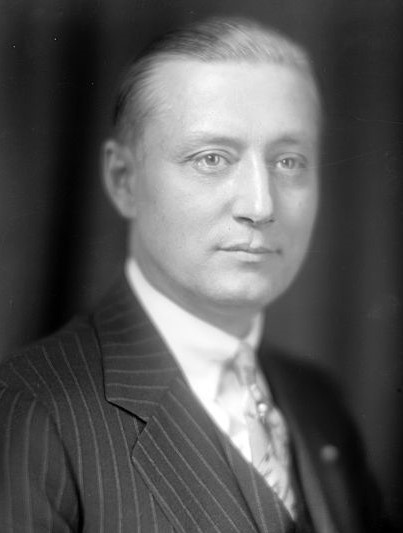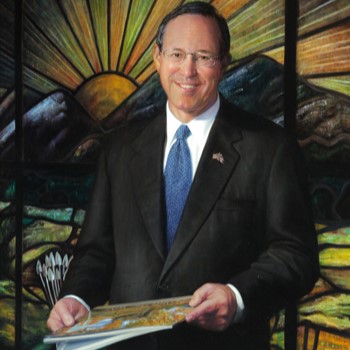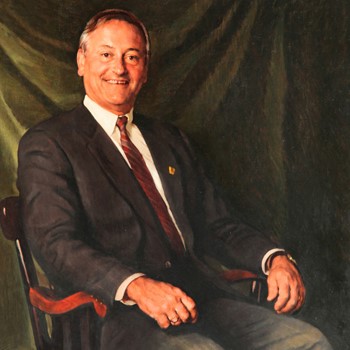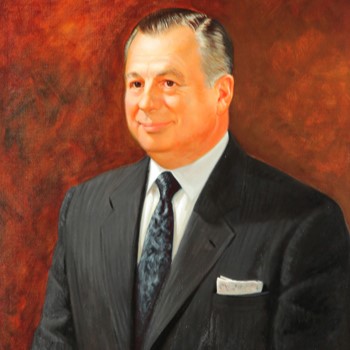Ohio
Gov. Martin Luther Davey
- January 17, 1935 - January 9, 1939
- Democratic
- July 25, 1884
- March 31, 1946
- Ohio
- Oberlin College
- Married Berenice Chrisman; three children
- Representative
About
MARTIN LUTHER DAVEY was born in Kent, Ohio. After attending Oberlin College, he went into his father’s tree surgery business, becoming General Manager in 1909 and President in 1923 of the Davey Tree Expert Company. He was elected Mayor of Kent in 1913, serving until 1918. He also served a number of non-consecutive terms in the U.S. House of Representatives during the teens and ’20s. After failing in his bid to defeat incumbent governor Myers Cooper in 1928, Davey entered the real estate business and became Treasurer of Davey Compressor Company. But in 1934 he mounted another campaign for governor, this time successfully. Davey’s administration was marked by feuds with both the Ohio legislature and President Franklin D. Roosevelt. When the legislature refused to appropriate funds for luxury items that he wanted, he solicited contributions for carpeting and bought a new limousine with National Guard funds. He then incurred the wrath of John L. Lewis and the Congress of Industrial Organizations when he used the National Guard to break a strike in the Mahoning Valley. At the end of Davey’s first term, the legislature denied his request to repeal the sales tax on food, in response to which Davey organized a successful petition drive to put the question on the ballot as a legislative amendment, which passed overwhelmingly. His feud with President Roosevelt began when he charged that the federal administration of relief in Ohio was “cruel, inhuman and wasteful.” In retaliation, the Roosevelt administration charged that Davey’s campaign committee had extracted contributions from persons doing business with the Federal Relief Administration. Davey and his managers were eventually cleared of the charges and Davey took out an arrest warrant for Roosevelt’s relief czar Harry Hopkins on a charge of criminal libel. These difficulties notwithstanding, during the Davey administration, legislation was enacted guaranteeing $48 million in state funds for local schools; old-age pensions were expanded; and a state unemployment insurance organization was established. However, because of the scandals associated with his administration and New Deal maneuvering, Davey was defeated in the Democratic gubernatorial primary of 1938. He won the nomination again in 1940 but was defeated by his Republican opponent in the general election and returned to his business interests.
Source
Sobel, Robert, and John Raimo, eds. Biographical Directory of the Governors of the United States, 1789-1978, Vol. 3. Westport, CT: Meckler Books, 1978. 4 vols.
The National Cyclopaedia of American Biography, Vol. 34. New York: James T. White & Company.
Biographical Directory of the U.S. Congress











